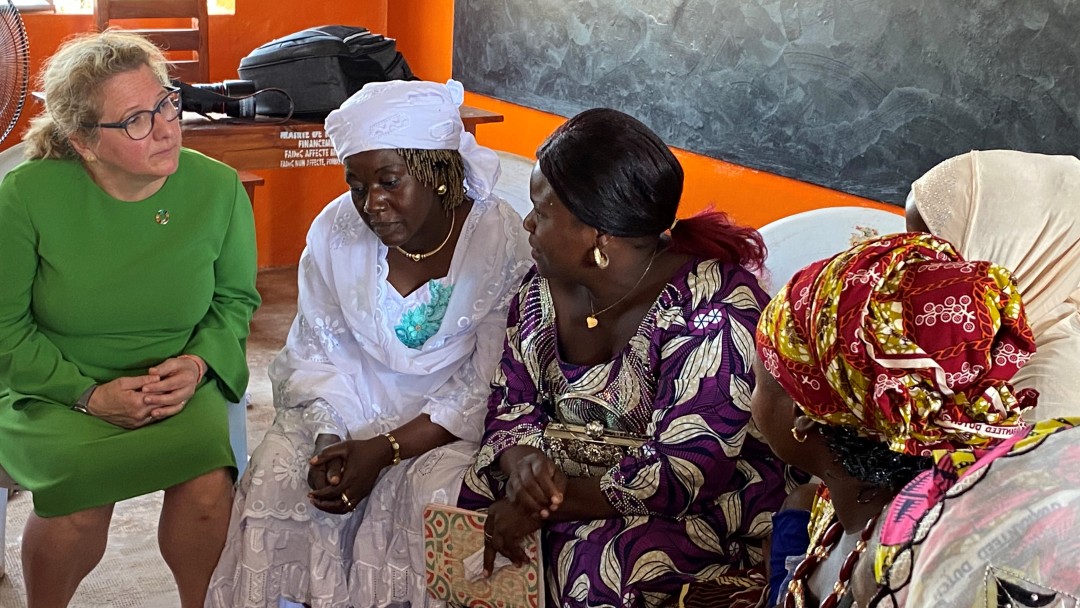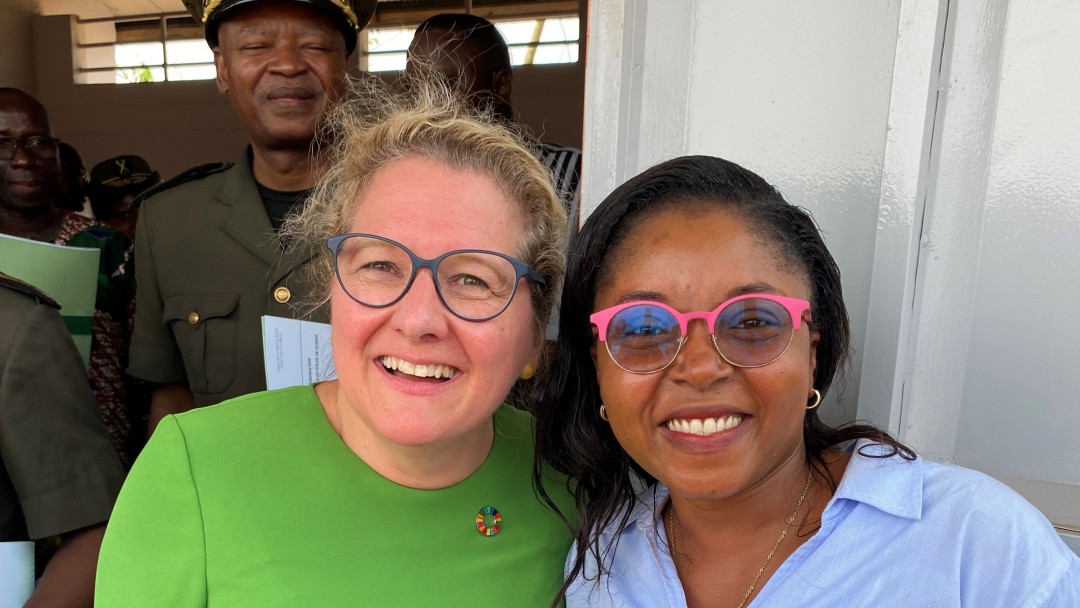News from 2024-03-11 / KfW Development Bank
Schulze reaffirms Germany's commitment to West Africa

At the beginning of March, Development Minister Schulze traveled to Burkina Faso and Benin for four days, accompanied by Ousmane Diagana, Vice President of the World Bank. In Benin, talks focused, among other things, on the consequences of Burkina Faso, Mali and Niger's declarations of withdrawal from the Economic Community of West African States (ECOWAS). In Burkina Faso, expectations and prospects for further cooperation were discussed with the transitional government. In Benin, Schulze also visited financial cooperation projects.
West Africa is a region that reflects the opportunities and challenges of an entire continent: a young population, high economic growth and numerous socio-economic potentials continue to face major poverty-related challenges and increasing destabilization. Against this backdrop, German development cooperation projects contribute to economic and social development - and thus to stabilization: through training places and jobs for a young, rapidly growing population, through improved agriculture and access to basic services in the communities.
The first project visit to Burkina Faso was to the agroecological training center Beo-Norée, a technical cooperation project. 260 young people and women have already been trained at this center: They are learning how to make their own fertilizer, grow vegetables and more on the dry land - for their own use and for sale. 40 percent of the participants have already set up their own small business.
Benin
The Beninese government has adopted an ambitious reform agenda: The aim is to achieve sustainable growth to improve living conditions. Agricultural products such as cotton are to be processed in the country, and qualified apprenticeships and jobs are to be created. The north of the country, which borders Burkina Faso and Niger, is threatened by terrorist violence and organized crime.

On behalf of the BMZ and in cooperation with other donors, KfW Development Bank is promoting the Fonds d'Appui au Développement des Communes (FADeC), a municipal development fund that provides the entire population with access to basic services. Since its launch in 2008 up to and including 2022, the state of Benin has provided around EUR 498 million, while the partners have contributed EUR 296 million. Among other things, more than 7,000 classrooms, stores and offices have been built, 550 health centers and more than 1,000 drinking water facilities. For the people, this means education, health and jobs.
Sahel window of the FADeC
During her trip, the minister visited Bohicon and spoke with women and young people who benefit from the specific Sahel window of the FADeC. KfW has been supporting the Beninese state in this explicit promotion of communities in northern Benin on behalf of the BMZ together with the Swiss Cooperation since 2021. Through participatory approaches and social dialogue on municipal infrastructure, the Sahel Window strengthens resilience to the spread of extremist approaches in 13 communities in northern Benin. More than 1,800 people, 54% of whom are women, have already been directly involved in decision-making processes on the selection of local development measures. Some examples: Refurbishing and equipping health centers, building schools, purchasing solar lamps for vulnerable localities, purchasing an ambulance, providing gardens and training in vegetable growing for refugees.
In addition to the KfW-financed project in northern Benin, the complementary World Bank project, which intervenes regionally in Ghana, Togo and Benin to strengthen social cohesion, was also presented during the joint trip by the BMZ and the World Bank. The World Bank's main focus here is on resolving conflicts between arable farmers and pastoralists.
Svenja Schulze commented on her trip: "What is happening in West Africa also has consequences for us in Europe. The spreading terrorist groups and the growing Russian influence in the region have the potential to increasingly destabilize an entire region in Europe's neighbourhood. That's why we in Germany and Europe would be well advised to remain engaged in this region."

Share page
To share the content of this page with your network, click on one of the icons below.
Note on data protection: When you share content, your personal data is transferred to the selected network.
Data protection
Alternatively, you can also copy the short link: https://www.kfw-entwicklungsbank.de/s/enzBWrMC.DDGA
Copy link Link copied